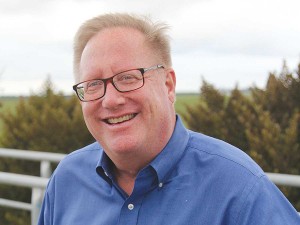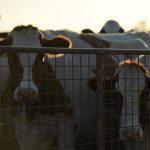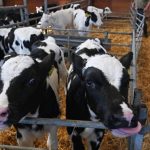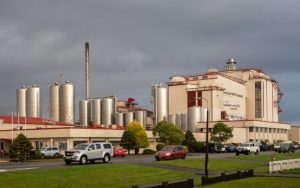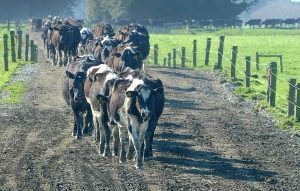
Each year, around 1300 elite dairy sires stationed at Select Sires’ 303 hectare Ohio bull farm and 212 hectare Wisconsin bull farm are charged with providing semen to sire the next generation of global dairy cows. Achieving this in the Covid-19 environment, however, calls for another layer of complexity.
John Schouten heads World Wide Sires, the marketing arm for Select Sires, which is one of the world’s largest dairy-farmer owned cooperatives. Right now he leads a team charged with understanding the movement controls that apply in each of more than 100 countries the company provides genetics to.
Like the rest of the World Wide Sires’ global team, Schouten is working from his home in Visalia, California.
“Most of the countries we are working in have some sort of restriction or lockdown due to the Covid-19. Our challenge is to understand those restrictions and ensure they get the right genetics – appropriate to what their farmers need – delivered at the right time and in the right way,” he says.
The situation varies by country, the region of the world and local conditions. It also depends a bit on how much impact farmers are experiencing due to Covid-19.
“As we know, breeding cows is essential to the sustainability of the herd for years to come. In some countries, prior to Covid-19, we experienced tremendous interest in improving genetics of herds due to the increasing requirements concerning nitrates and phosphorus. Dairymen around the world recognise that improved production and efficiencies are important for their selection processes – now more than ever.”
He says in some countries, on-farm visits simply aren’t possible right now. WWS is working to understand what form of contact works best for each farmer within the relevant restrictions.
“It’s at times like this that you see the resilience of farmers and we are very privileged to see this on a global stage. They are the masters of adaptation, pragmatically adjusting their businesses so they can continue to provide much needed food to the world.”
Due to Covid-19, WWS is seeing a change in buying behavior; farmers are tending to order their semen a little earlier and there’s a trend for larger orders.
The company says this pattern suggests farmers want the reassurance of having their genetic supplies on-farm well in advance of the breeding season.
Demand to date suggests this year will set a new sales record, says Schouten. He says optimism among WWS customers is high.
“Dairymen around the world all face similar issues and market situations. Presently milk prices are lower in Europe and North America due to Covid-19 and the challenges to the supply chain for milk and milk products. The closure of restaurants and diminished tourism market is having a significant impact on milk consumption.
“However, the good news is that China appears to be coming out of this situation. This should be good news for producers particularly for countries like New Zealand which could be one of the first places in the world to show upward demand and prices for milk prices.
“The sooner we are able to get back to a more normal situation, the sooner we can see the milk market turn back to something more normal.
“Around the world, in all the markets we’re involved in, we are getting a strong sense of appreciation for the strength and value of farming in helping economies recover.
